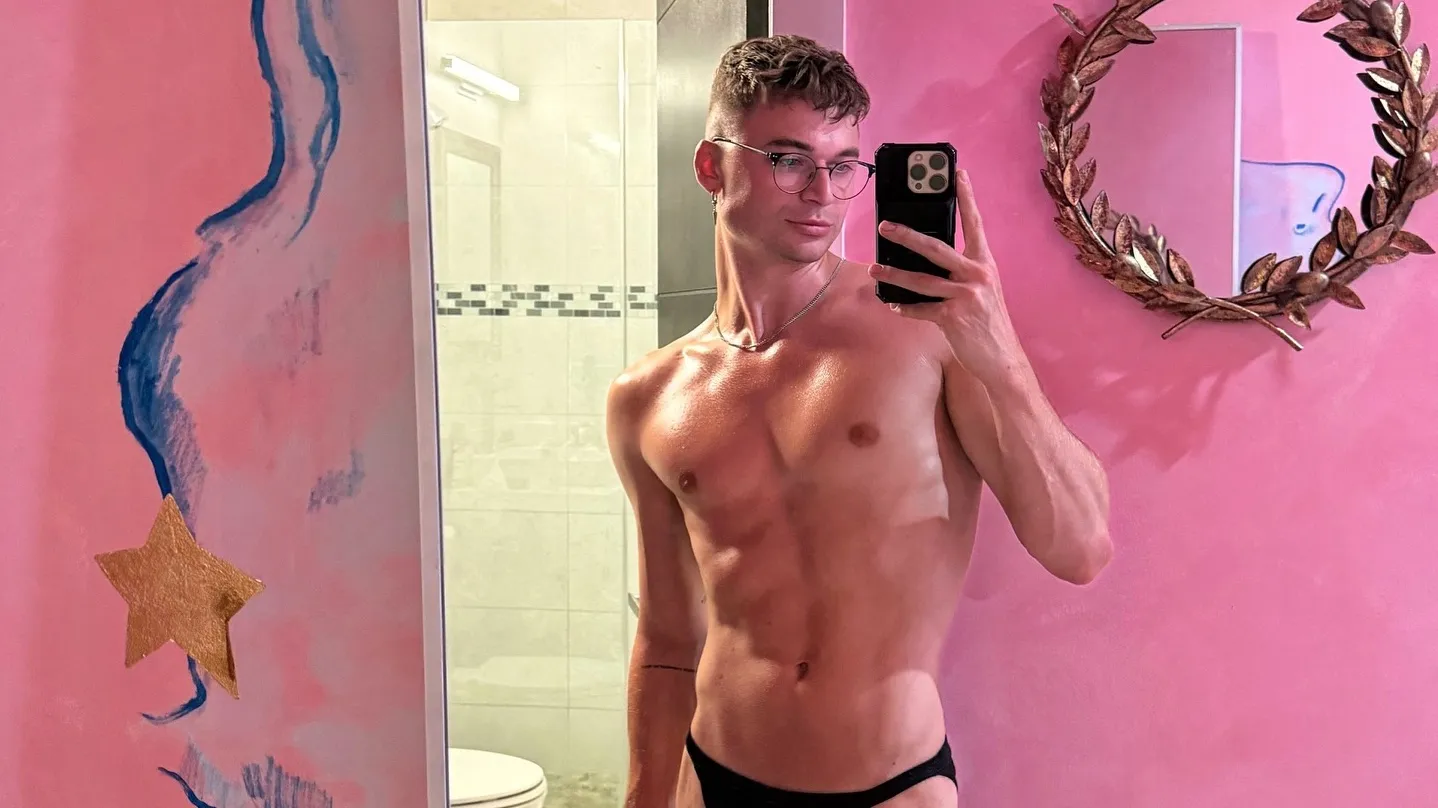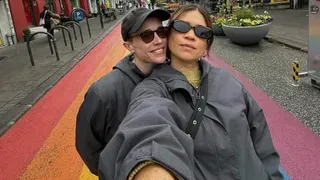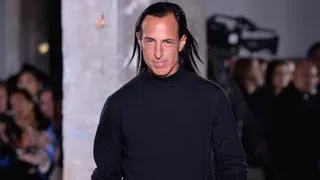March 17, 2006
Eve Ensler: Body Politics
Robert Nesti READ TIME: 5 MIN.
?In the midst of a war in Iraq, in a time of escalating global terrorism, when civil liberties are disappearing as fast as the ozone layer, when one out of three women in the world will be beaten or raped in her lifetime, why write a play about my stomach?? asked Eve Ensler in her preface to The Good Body.
Because, Ensler explained recently, it was there.
?I looked down one day and saw my stomach. I thought I was done with the body and there it was: my post-40 stomach.?
And it didn?t make the 53-year old writer and performer (do I have to say The Vagina Monologues?) happy.
?I couldn?t believe how much time I was spending obsessing about it, and it was shocking to me being a feminist -- with my ideology intact, that I could be this obsessed about my stomach. So I began thinking what is at the root of this? I just felt utterly possessed and occupied, and I wanted to see if I could deconstruct it.?
Her effort became The Good Body, her latest one-person show that comes to the Cutler/Majestic Theatre this week as part of its current national tour. In the piece Ensler examines her body issues, as well as explore those of a number of other women, who range from the famous (Cosmo founder Helen Gurley Brown and former Lacombe spokesperson Isabella Rossellini) to an African-American teenager she meets at a spa (that the girl calls a fat camp) and a 35-year old model whose body is being molded by her plastic surgeon husband.
The piece came about in a more intuitive manner than The Vagina Monologue. Instead of a process involving interviewing hundreds of women, she began with a conversation with herself, or rather, as she puts it, an ?inner dialogue? with her stomach that she wrote in a journal for three years. From there she began discussing body issues with women, but in more informal manner as she toured the world in conjunction with V-Day, the annual fundraising and awareness event she created after the runaway success of The Vagina Monologues.
?With this it was more charting my own journey, and as I was traveling with V-Day around the world I would just have conversations with women. Very often not organized interviews, but with them I was able to plant little seeds in my brain to create from later. And all of this is connected to some little particle of truth I heard somewhere.?
What she came to learn that was that the way we view our bodies has much to do with what the corporate establishment tells us how we should look: in other words, you?re never appear too young or too thin.
?I think it?s all part of a package: it?s youth, it?s thin, it?s lean, it?s mean, it?s blond. There?s something untouchable about it. And it?s not sexy. It?s not luscious. We are told that having a flat stomach is the way we are suppose to be: and this image of skinny, toned, flat women is this heartbreaking image that everyone is suppose to live up to.
?It?s true of men ? gay and straight -- as well,? she continued. ?Oh, my God. Talk about abs and pumped up chests. There are all these mandates that someone came up with to determine if we?re good or right or loveable.
?What it does is objectifies our view of ourselves -- this idea of ourselves as hardened, petrified; as opposed to being delicious, messy, real -- oh that word -- authentic.?
Where does this body fascism come from?
?I think that the corporate media -- the consumer state machine has created it. It keeps us consuming, doesn?t it? We take out gym memberships, we buy products ? endless product ? that keeps us consuming and buying. It?s this paradigm they?ve created of what we are suppose to be; and then make people feel awful if they?re not what it is.?
What she learned is that to like your body you need to be happy with it.
?I think the deal is liking what you have, whatever it is; and how do you feel good about what it is. The idea is not to be perfect, but to be real, to be authentic. I wasn?t happy with my body before I started the piece. I?m much happier today. I?m grateful to it. It?s been very kind to me over this tour, which has been long and tiring and exhilarating.
?And,? she continued, ?If I?m doing this piece now, and why I am doing this grueling tour, is because I am so concerned about the state of America at this particular moment; and the dangerous eroding of everything that means something. This incredibly ungodly war that has killed thousands of people for no reasons that any of us can fathom that was fought illegally; the eradication of civil liberties; the rise of a conservative force in this country that is undermining gay rights and women?s rights, and reproductive rights, and the desecration of the environment. Where is everyone? We?re off fixing our bodies. We are off getting liposuction, we?re off to the gym, we?re off to a spa. Attention is needed, but we?re not paying attention.?
How have audiences been responding to the piece?
?You know we?re getting the most extraordinary response from audience. For instance we had a talk back last night. I?ll give you a sampling: a high school girl came up to me to say that people made fun of her her entire life and this was the first night she ever liked her body. A young, beautiful gay man came up to me to say that he had always hated his body and didn?t think he was good enough to be in the gay world, and this was the first time he decided he liked his body. Older women came up and just said thank you. A lot of people came up and said that they were going to get ice cream. And another young woman told me that she and her friend were going to start a group to focusing on current events rather than focusing on their bodies.?
Ensler paused for a minute, and then continued.
?I think the most revolutionary thing you can do right now is forget your body and start having power in the world. That?s the message of the play: stop fixing your body and start fixing the world.?
At the Cutler/Majestic Theatre, Boston. 219 Tremont St., Boston, MA. Tuesday 7:30pm / Wednesday 8:00pm / Thursday 8:00pm / Friday 8:00pm / Saturday 2:00pm & 8:00pm / Sunday 2:00pm & 7:00pm. Tickets: $35.00-$65.00. 1-800/233-3123. www.maj.org.
Robert Nesti can be reached at [email protected].






